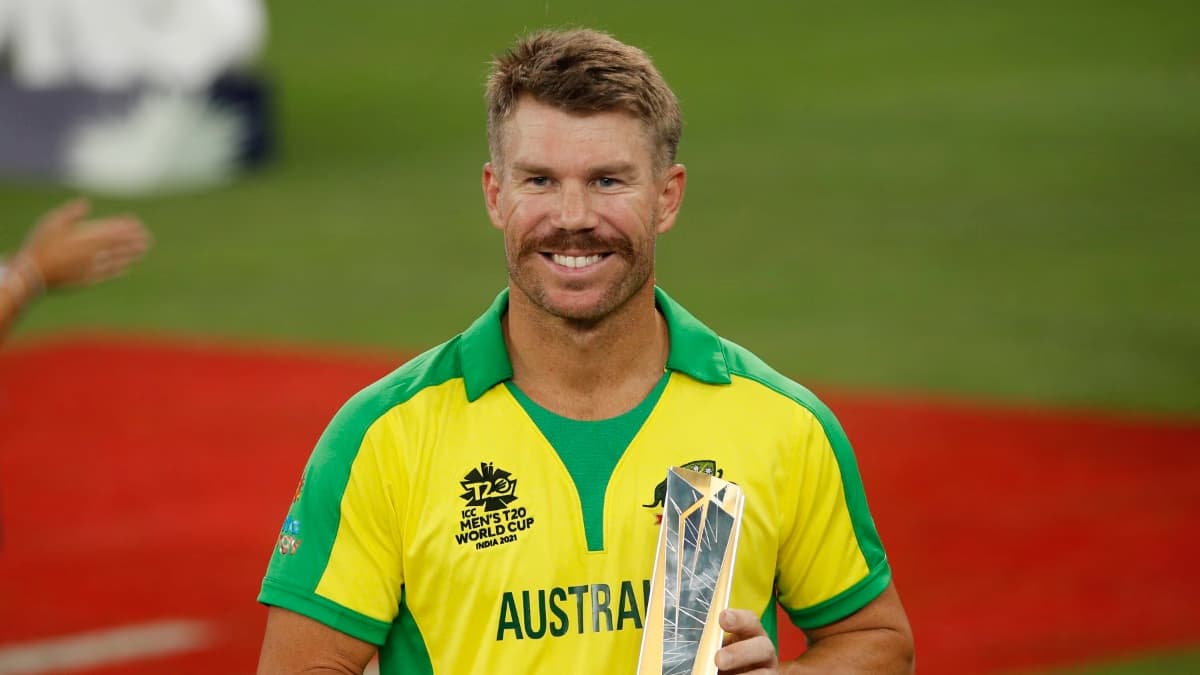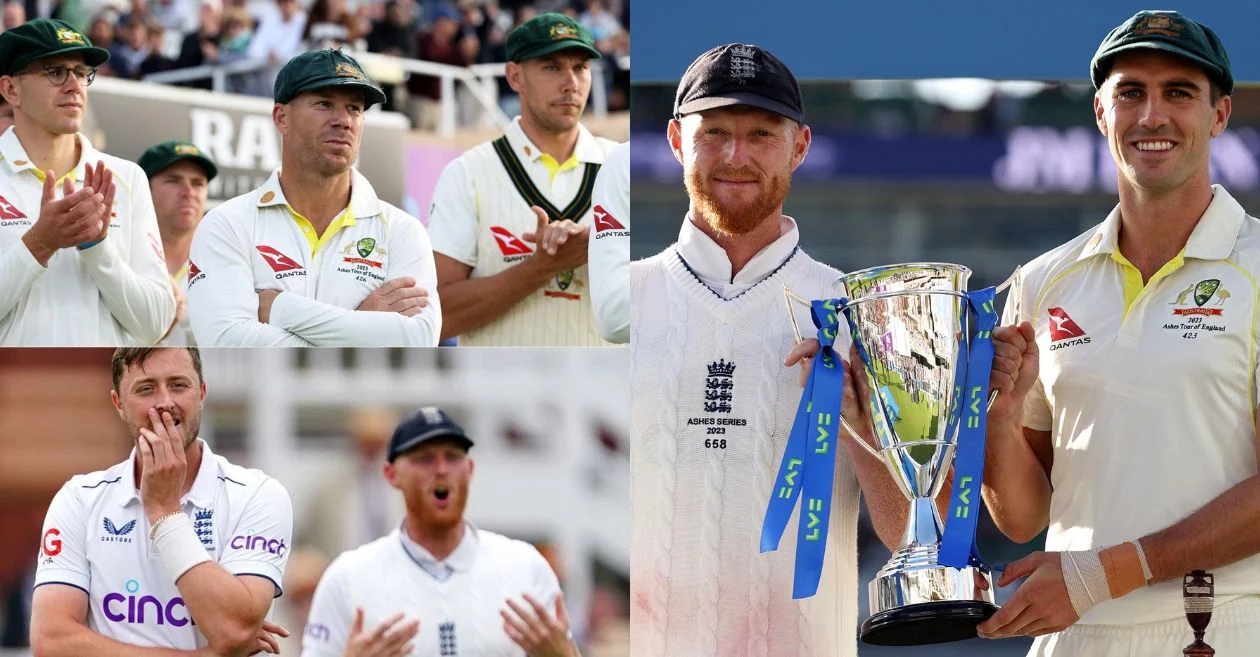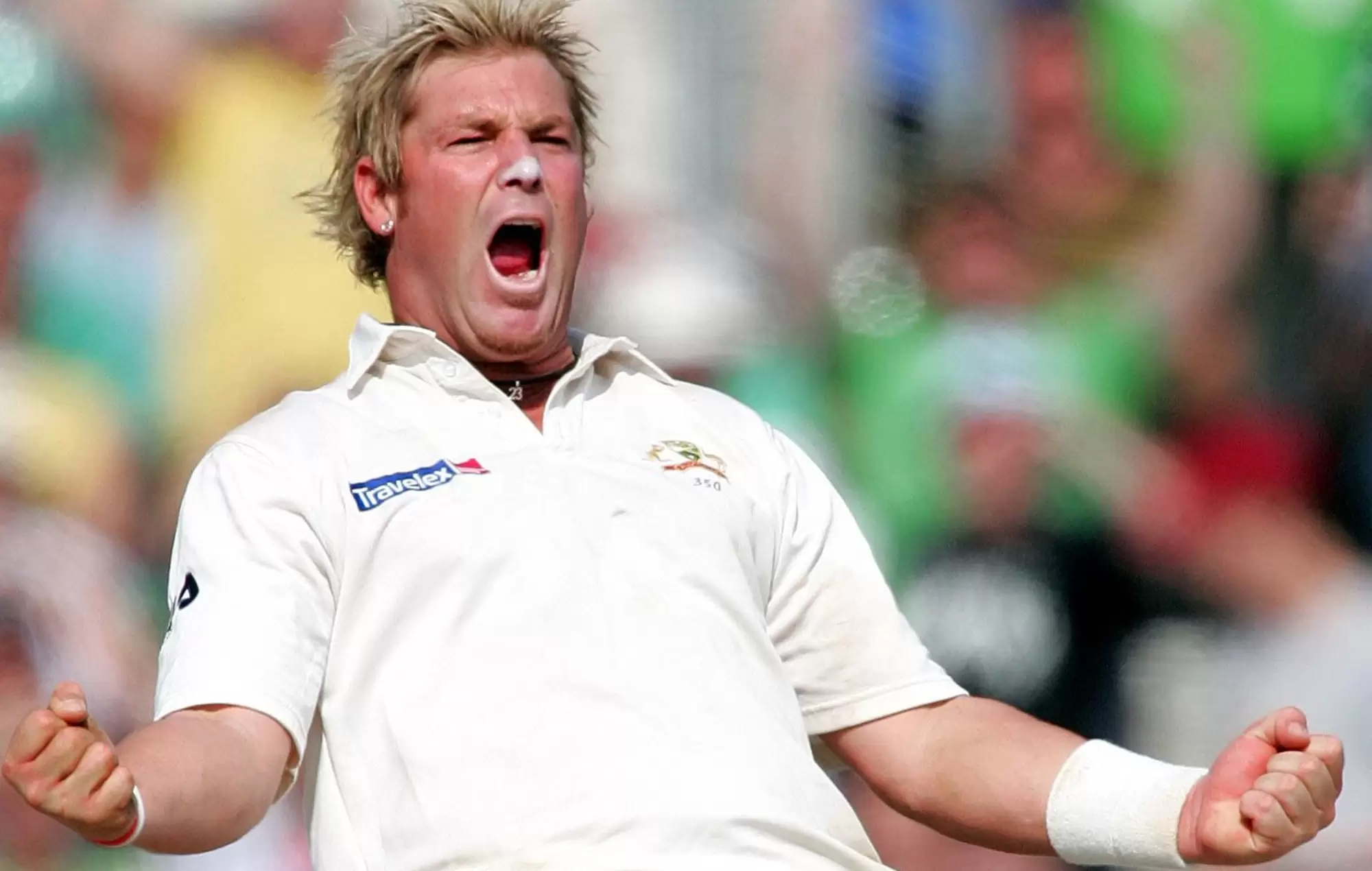Almost an year after he retired from red-ball cricket, David Warner, has retired from white-ball cricket too. This was a much anticipated and expected announcement that came at the end of the group game against India. Everyone knows that for sometime now, Warner has been struggling with his form in all formats. It is often tempered with a stray innings amongst a sea of low scores. Having said that, where does Warner stand in the annals of the game? What will be his legacy? Can he be classified as a great of his era? Can he be considered as a behemoth who laid into the bowlers with his short making? His career, he himself will admit has not been a complete one. Lopsided performances that jostled between two extremes. The career of David Warner.
I am afraid that this is going to be a critical piece about David Warner.
The Newlands controversy
For all his ability, Warner will first and foremost be remembered for his role in the Cape Town ball tampering incident. It is now a well established fact that it was Warner’s idea to scratch the ball with Smith approving and Bancroft carrying out the actions. There is a vast section among the Australians who will never forgive him for that.
“I think it’s going to be inevitable that when people talk about me in 20 or 30 years’ time, there will always be that. There will always be that sandpaper scandal,” Warner said.
Yes, he was banned for a period of one year. There were calls at that point to ban him entirely. Vice-captaincy was stripped off and he was more or less a cricketing untouchable. In the immediate aftermath of the Tim Paine scandal, Australia were searching for a new captain. Warner did not even figure in that discussion. Cricket Australia was even prepared to go back to Steve Smith but Warner was not in their thoughts. It showed that the Australians were not prepared to forgive him. They forgave Smith and Bancroft but not Warner because it was all his suggestion. It will be inevitable that he will be associated with Newlands for the rest of his life. He needs to live with it.
Another way people will remember him
Warner either by his own choosing or that of the team management or the please his seniors, assumed the role of being an aggressive brat who would constantly abuse and sledge the batsmen. The Australians call it mental disintegration but all of us know that it was, is and will always be downright abuse. Warner himself was involved in numerous such incidents that many a times, went overboard or again the Aussies would love to call it as crossing the line. Where is the line and what crossing it means, this no one is aware. If the Australians felt that some imaginary line is crossed, it is crossed. They are hypocrites of the first order. Not that other teams aren’t but Australians are the pioneers who have made this an art.
The most famous of his indecent behaviour happened again in South Africa when he fought with Quinton de Kock over some remarks that de Kock allegedly to have made. Why was Warner offended? He could very well have started the argument or the fight on the field which spilled over to the dressing room. Warner took the image of “Ugly Aussies” to another orbit. He relished the role. It took some years for Warner to realise that it is affecting his image badly and he decided not to continue in the same fashion. However, the damage was already done.
How has his career progressed?
Warner’s career has been sort of a mixed bag. More than 8000 runs at 44 in Tests, close to 7000 runs in ODI at 45 and 3277 runs at 33 in T20. He is the leading run scorer in T20 among all the Australian batsmen. These numbers are quite impressive. Especially, the ODI numbers. The point is that based on his overall numbers, can he be classified as a great batsmen? Agreed, he has the best numbers among the Australians in all the formats but I still will not place him in the category of a great. He sure was a good batsman but fell way short of being considered a true great of the game.
In this day and age, scoring runs in ODI and T20 has become achievable. The short boundaries, the powerful bats and the field restrictions have ensured that. Just look at the number of 325 scores in ODIs by teams. There was a period where it was considered near impossible to score that many till the beginning of the new millennium. It is Test cricket that is still the pinnacle of the support and where the batsman is completely tested against every type of bowling on a variety of pitches.
Australia and Test cricket
Australians place a lot of importance on Test cricket. They often talk about the spirit of the game when it suits them and the traditions of the game. Hence, Test cricket is where Warner’s performance needs to be measured. Shockingly, his numbers are completely lopsided. His record is excellent in his home country and in South Africa where the pitches are similar but on pitches he wasn’t used to or provided him with a challenge, he has more often than not, fallen short. England and India where he has played a significant number of Tests. In New Zealand, Pakistan and Sri Lanka though the sample is less, his numbers are pretty poor. What is more shocking is that, he hasn’t scored a single 100 in any of these countries.
Wrapping up the David Warner career
For those who term Warner as a great cricketer, I have news for them. He certainly does not qualify as a great but as a good batsman, he certainly does. Hopefully, after retiring, he will find peace and that he will work towards improving his image significantly.
Other blogs about Australia
https://icricketcritique.com/winning-in-australia-is-so-bloody-tough/
https://icricketcritique.com/winning-in-australia-is-so-bloody-tough-2/
https://icricketcritique.com/australia-performance-review-of-2022/
https://icricketcritique.com/the-australian-team-for-india/
https://icricketcritique.com/australians-are-happy-without-tour-games/
https://icricketcritique.com/the-takeway-for-australia-after-the-series/
https://icricketcritique.com/review-of-australia-in-2023/



